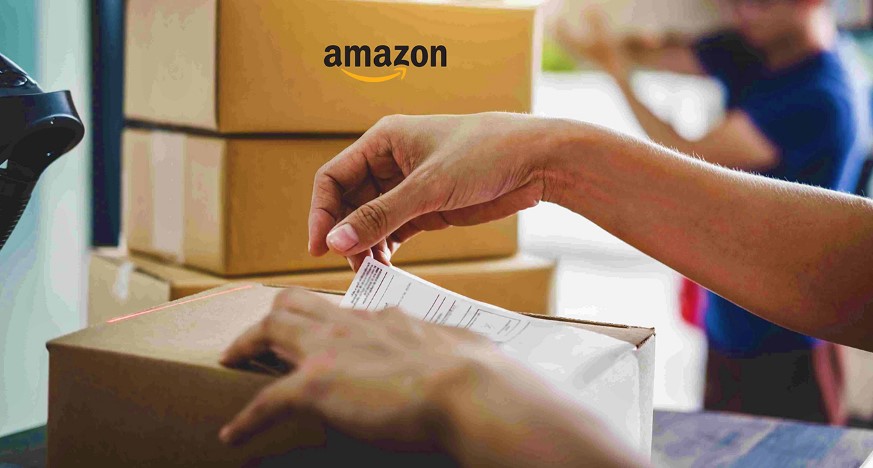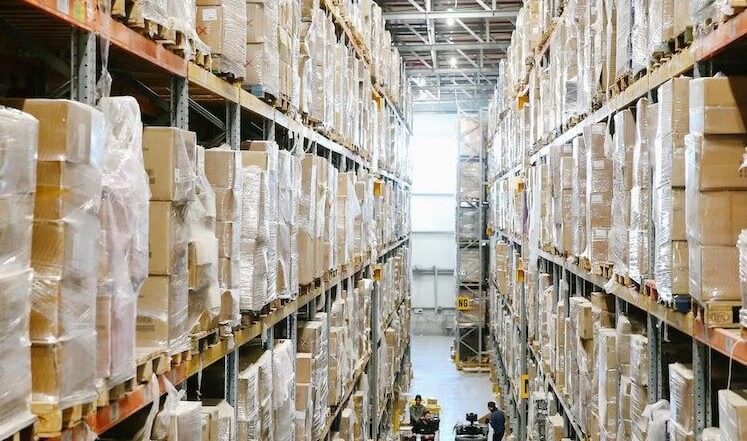Yes, Amazon sellers in certain U.S. states and business structures can legally use tax-free prep services, but it depends on where your inventory is prepped, how your business is registered for sales tax, and whether your prep center qualifies as a sales-tax-exempt entity.
The main way sellers take advantage of this is by working with prep centers located in sales-tax-free states like Delaware, Montana, New Hampshire, and Oregon. In these states, purchases of services (and in some cases, the materials used for prep, such as boxes and polybags) are not subject to state sales tax.
This can cut 4–10% from your prep costs, which adds up significantly for high-volume FBA sellers. However, tax laws vary, and your eligibility will depend on your business location, nexus rules, and the specific prep center’s tax policies.
Why Prep Costs Matter in Amazon FBA Profit Margins

Amazon FBA prep services, labeling, polybagging, bubble-wrapping, inspection, and bundling are a necessary expense for sellers who don’t have the time or capacity to prep goods themselves. While the average unit cost for prep is between $0.50 and $2.00, the hidden impact of sales tax can quietly raise that number.
If your prep service is located in a state with a 7% sales tax rate, that $1.00 service is costing you $1.07. Multiply that across thousands of units per month, and the number is significant.
Example Calculation:
| Units/Month | Base Prep Fee | Sales Tax Rate | Effective Unit Cost | Monthly Prep Cost |
| 10,000 | $1.00 | 0% | $1.00 | $10,000 |
| 10,000 | $1.00 | 7% | $1.07 | $10,700 |
That $700/month difference equals $8,400/year, and that’s just from taxes.
States with No Sales Tax (Prime Locations for Prep Centers)
In the U.S., there are five states without a statewide sales tax. Four of them are especially popular for FBA prep centers:
| State | Sales Tax Rate | Prep Service Taxable? | Special Notes |
| Delaware | 0% | No | Popular for e-commerce warehousing; low business fees. |
| Montana | 0% | No | No tax on services or materials; fewer large-scale centers than Delaware. |
| New Hampshire | 0% | No | No tax on services, but fewer logistics hubs. |
| Oregon | 0% | No | Strong infrastructure for West Coast sellers. |
Alaska has no statewide sales tax but allows local taxes in some cities, so sellers must check specific local rules before choosing a prep center there.
How Tax-Free Prep Works

1. Location-Based Service Taxation
Sales tax is generally applied based on where the service is performed, not where your business is located. If your prep center is in Delaware and performs all work there, no Delaware sales tax is charged, even if you live in a state with sales tax.
2. Material Exemptions
In some cases, the materials used in prep (poly bags, labels, boxes) may also be exempt from sales tax in tax-free states. In taxable states, these are often taxed unless you provide a resale certificate.
3. Resale Certificates & Exemption Forms
If you’re in a taxable state, you may still avoid tax by providing a valid resale certificate to your prep center, stating that the materials and services are part of goods you sell to the end customer.
Nexus Rules – The Hidden Factor
A big part of keeping tax-free prep truly “tax-free” is avoiding sales tax nexus in the prep center’s state. Nexus means you have a sufficient presence in that state to require tax collection.
Common Nexus Triggers for Amazon Sellers:
- Having inventory stored in a state (Amazon FBA automatically triggers this in states where your goods are stored).
- Owning or leasing office or warehouse space in the state.
- Having employees or contractors working in the state.
Key Point:
If your only connection to a tax-free state is sending goods there for prep before they’re shipped to Amazon warehouses elsewhere, you typically don’t create nexus, but you must confirm this with a tax professional.
The Cost Impact – Real-World Scenarios

Case Study: Mid-Volume Seller
- Units/Month: 5,000
- Prep Fee/Unit: $1.20
- Sales Tax in Current Prep State: 6.5%
- Monthly Cost with Tax: $6,390
- Monthly Cost without Tax: $6,000
- Annual Savings: $4,680
Case Study: High-Volume Seasonal Seller
- Units/Month (Peak Season): 15,000
- Prep Fee/Unit: $0.95
- Sales Tax in Current Prep State: 8%
- Monthly Savings in Peak Months: $1,140
- Annual Savings (6-month season): $6,840
Finding a Legitimate Tax-Free Prep Center
Choosing the right prep center is not just about price; i t’s about confirming that the tax advantage you expect is both real and sustainable. Many sellers assume that any facility in a tax-free state automatically provides tax-free services, but that’s not always true. The only way to be sure is to do thorough due diligence before signing an agreement.
Business Registration
Start by verifying that the prep center is legally registered in a state with no sales tax, such as Delaware, Montana, New Hampshire, or Oregon. You can check this through the state’s official business entity search tool, which will show the legal address, date of registration, and ownership details. If a center has multiple locations, confirm where your inventory will physically be processed, because it’s the location where the work is performed that determines whether sales tax applies.
Tax Policy Confirmation
Do not rely solely on marketing claims. Ask the prep center directly, in writing, whether they charge sales tax to out-of-state clients. Reputable providers are transparent about their tax policy and can explain why their services are tax-free. This is especially important if you’re specifically seeking a tax-free Amazon prep center, as some businesses advertise tax savings but still collect tax on certain materials or services due to state-specific rules.
Pricing Structure
While avoiding sales tax can save 4–10% on prep costs, it’s still important to compare the base rates. Some centers in tax-free states increase their unit fees to offset the competitive advantage they offer. Run a side-by-side cost comparison between tax-free and taxed providers, factoring in both per-unit pricing and any additional handling or storage fees. The true savings come from a combination of lower base costs and the absence of sales tax.
Experience with Amazon Sellers
Not all prep centers understand Amazon’s FBA compliance rules in detail. Errors in labeling, packaging, or shipment creation can lead to delays, chargebacks, or even inventory refusals. Work only with providers that have documented experience prepping for Amazon sellers, ideally with references you can verify. A tax-free location won’t help your bottom line if the prep work causes costly compliance issues.
Risks of Doing It Wrong
View this post on Instagram
While the savings from tax-free prep are attractive, there are real compliance risks if you misunderstand the rules or work with the wrong provider.
Misuse of Resale Certificates
A resale certificate is a legal document, and misusing it, for example, applying it to services or items that don’t qualify, can result in state tax audits, penalties, and interest charges. If your prep center requires a resale certificate, ensure you understand exactly what it covers and maintain proper records of all transactions.
Incorrect Nexus Assumptions
Nexus rules have changed significantly since the South Dakota v. Wayfair decision. Many sellers incorrectly assume that using a prep center in a tax-free state means they have no tax obligations there. However, certain activities, such as storing inventory for an extended period, could still create nexus and trigger tax collection requirements.
Changing State Tax Laws
Tax laws are not static. A service that’s exempt today could become taxable if the state legislature changes the law. If you rely on tax-free prep as part of your cost strategy, you should monitor relevant state tax updates at least quarterly to avoid unexpected cost increases.
Amazon’s Inventory Relocation
Even if your goods are prepped in a tax-free state, Jeff Bezos‘ Amazon may transfer them to fulfillment centers in other states where you have nexus. This relocation doesn’t affect the tax status of the prep work, but it can expand your sales tax collection obligations. Sellers should track where their inventory is stored through the Inventory Event Detail report in Seller Central.
